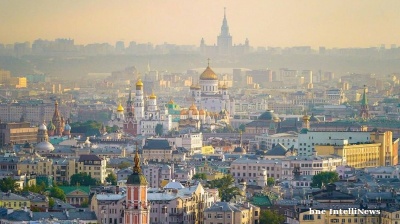The share of Russians that want the government to resign rose to over half in December to 53%, up from 33% in November, according to the most recent poll by independent pollster the Levada Center, Vedomosti reported on January 14.
The government has taken a hit from a range of issues that hurt its popularity in 2018. An increase in retirement ages introduced last summer during the World Cup has been extremely unpopular, as was a hike in VAT rates from 18% to 20% that went into effect on January 1.
The retirement ages were 60 years for men and 55 for women, set in the USSR back in the 1930s when average life expectancy was 40 years, but has been increased to 65 for men and 63 for women.
Levada found the main complaints about the cabinet was its inability to cope with rising prices and falling incomes of the population (57%), lack of readiness to provide people with work (46%), and lack of care for the social protection of citizens (43%).
Over the past six months, general scepticism regarding the government has grown, Levada Center sociologist Marina Krasilnikova explained as cited by Vedomosti: “The main complaints are still against the government, although the level of trust in the president also sank significantly. There is a steady deterioration in public sentiment. It is important that people respond more actively to the question of complaints against the government, they give more diverse and specific answers. "
Krasilnikova argued that the pension age hike has undermined the trust in the state and “confirmed the fears that the state is not a very reliable institution.”
This poses a problem for President Vladimir Putin as the increase in the pension age, while necessary from an economic point of view, has undone the social contract between the president and the people.
Levada also updated its other political sentiment metrics, most of which stayed the same or slipped slightly.
Putin’s personal popularity over the last four months remained high and unchanged in December at 66% approve, 33% disapprove.
However, the rest of the senior level of government remains extremely unpopular. The government approval rating fell from 42% in November to 37% in December and its disapproval rating rose from 57% to 63%.
More specifically the approval of both Russian Prime Minister Dmitry Medvedev and the Duma are down to 32% and 33% respectively, versus 67% and 66% disapproval.
Governors are fairing a lot better with a 58% approval rating versus 39% disapproval, making the regional governors amongst the most popular branches of government.
Despite the malaise following the tax and retirement age increases, overall a tiny majority of Russians still believe that the country is going in the right direction, with 45% agreeing with this sentiment versus 44% saying it is going in the wrong direction.
And even if Russians are not happy with their government the propensity to protest remains at low levels although it increased sharply last year: the propensity to protest with political demands is 22%, up from the previous year’s low of 8%. And the propensity to protest with economic demands more than doubled to 30%, up from the previous year’s low of 8%.
Data

India’s retail payment revolution
India’s payments landscape has reached a pivotal stage, with digital transactions now accounting for 99.8% of all retail payments.

Military aid for Ukraine falls despite new Nato PURL initiative – Statista
The Kiel Institute for the World Economy found that military aid to Ukraine dropped sharply in July and August compared to previous months, despite the implementation of the Nato PURL initiative.

IMF cuts Russia’s 2025 growth forecast to 0.6%, leaves Ukraine's unchanged at 2%
The International Monetary Fund has lowered its forecast for Russia’s economic growth in 2025 to just 0.6%, marking the second-steepest downgrade among major economies, even as it raised its global outlook.

Russia's PMI indices plummet as economy cools
Russia’s private sector entered deeper contraction in September, as both services and manufacturing activity declined, according to the latest PMI data published by S&P Global.

.png)

